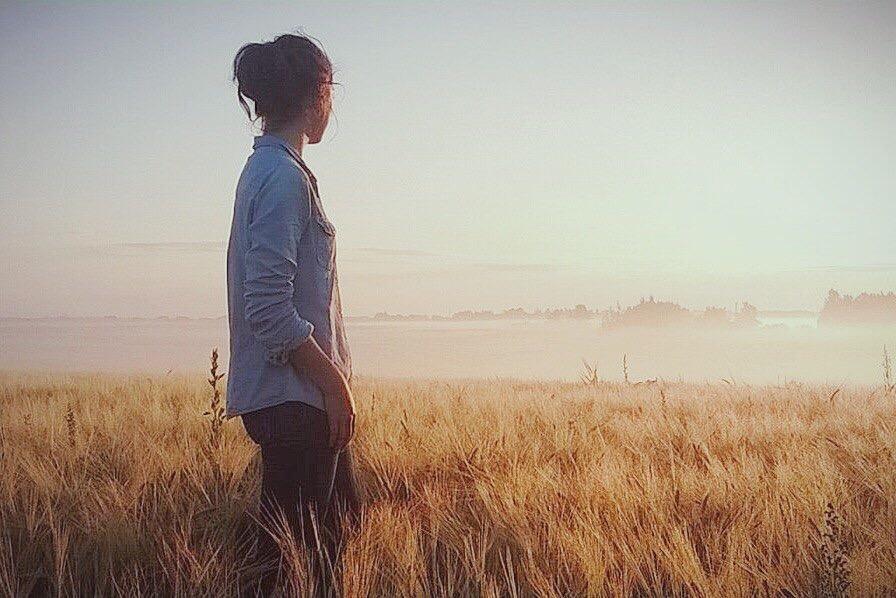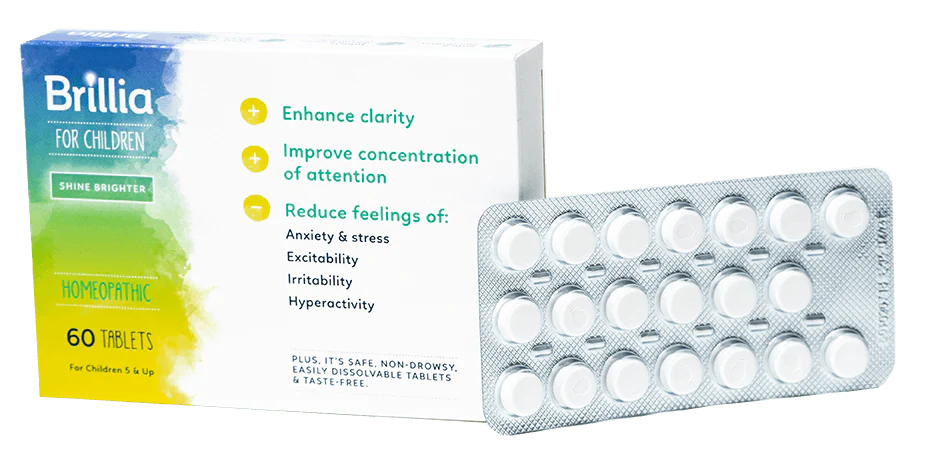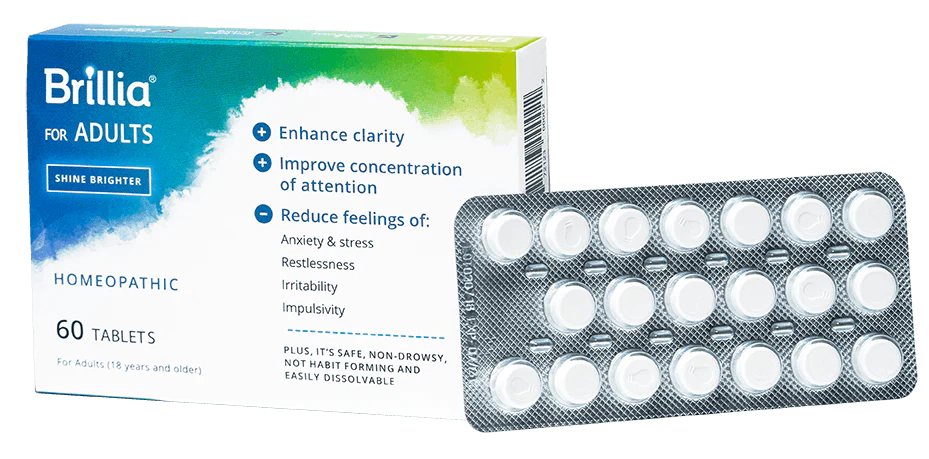Many people falsely believe that anxiety is something that only plagues adults. With our running list of stressors—from bills to parenting to health concerns—we often reminisce about our younger years when life seemed so much easier. But for some children, dealing with anxiety is an ongoing struggle, with seemingly small concerns ushering in big and complicated feelings. According to the CDC, approximately 4.4 million children in the U.S. aged 3-17 years have diagnosed anxiety.1 This may range from separation anxiety to panic disorders to specific phobias and fears that interfere with school, play, or home life. While the thought of having an anxious child may trigger feelings of guilt or confusion in parents, it’s important to remember that even the most cared for children can struggle with anxiety. Thankfully, there are a number of anxiety remedies that can help naturally.
Signs & Symptoms of Child Anxiety
Fears and worries are common in young children, but when they interfere with academics, socializing, or their general well-being, it’s time to seek help. Anxiety manifests in a number of different ways, but some of the more common signs and symptoms to look out for include:
- Having trouble concentrating
- Not sleeping or waking up in the night with night terrors or bad dreams
- Nausea, loss of appetite
- Being irritable and quick to anger, or having little control during outbursts
- Constant worrying and rumination
- Being clingy and afraid when away from parents or caregivers
- Showing extreme fear about a specific thing or situation such as going to school, leaving the house, dogs, objects, etc.
- Having intense fear combined with physical symptoms like heart racing, shallow breathing, dizziness, and sweating
- Catastrophizing the future
- Repeating behaviors related to grooming or sensory stimulation like hair pulling, skin picking, or nail biting
- Having an irrational fear of dirt, germs, or illness
- Being preoccupied with symmetry and order
Why It Is Important to Recognize & Treat Child Anxiety
If left untreated, anxiety may worsen over time, turning anxious children into anxious teens and adults. In fact, research2 shows that when children with anxiety do not receive support, they are at higher risk to perform poorly in school, miss out on important social experiences, and engage in substance abuse. Even more, anxiety symptoms in children are associated with a lower general quality of life3. By using a holistic approach that uses Brillia’s 5 Pillars, children can experience relief from anxiety naturally with the aid of homeopathic treatment, limited screen time, proper nutrition, quality sleep, and mindfulness.
What Triggers Child Anxiety?
From genetics to environmental factors, there are a number of reasons a child may become anxious or develop an anxiety disorder. Like anxious adults, children with anxiety have heightened responses to stress, whether this stress involves fatigue, social situations, or maybe even a sudden transition away from social life such as during the COVID-19 pandemic. Anxious children may react to such stressors with the fight or flight response, either acting out in defiance or withdrawing in fear.
How Brillia For Children Can Help Child & Teen Anxiety
If you suspect your child is struggling with anxiety, it’s not always necessary to seek the advice of a healthcare provider. Some professionals prescribe medication for anxiety like a selective serotonin reuptake inhibitor (SSRI), but many parents are wary of the side effects4 of such medication, which may include headaches, insomnia, hyperactivity, and more. Choosing a homeopathic alternative that is holistic and works in tandem with healthier lifestyle choices like Brillia allows parents to address their child’s anxiety naturally with a safe and specifically targeted solution.
Brillia is a non-prescription natural anxiety medication for children designed to reduce feelings of anxiety, stress, and excitability. Its targeted ingredients include antibodies to the brain-specific S100 protein (S100B), a protein that regulates many different intracellular and extracellular brain processes. Brillia works by stopping the S100B protein from acting in the body, consequently regulating levels of anxiety and hyperactivity.
Proven benefits of taking Brillia include:
- Enhanced clarity and focus
- Reduced feelings of anxiety, irritability, and hyperactivity
- Mental clarity
- No side effects or contraindications with other supplements or medication
Along with using a product like Brillia, parents should integrate complementary and healthier lifestyle factors into their child’s life. Brillia’s 5 Pillar program offers an integrative treatment plan for children, with each pillar supporting the next. These natural anxiety remedies for kids include:
Shine Brighter
- Following a nutritious diet: Diets high in sugar and processed foods can make the symptoms of anxiety worse. Eliminate sugary sodas and juices and adopt a diet rich in vegetables, fruits, healthy fats, fish, nuts, seeds, and high-quality meats. You might also explore herbal remedies for anxiety, such as chamomile tea or lavender.
- Getting adequate sleep: Insufficient sleep can lead to poor academic performance, difficulty concentrating, and increased anxiety and ADHD symptoms. Follow the recommended age guidelines for sleep and create a positive sleep ritual that will signal to your child that sleep is a priority in their life.
- Limiting screen time: Part of that sleep ritual will include limiting screen time, which is no easy feat in this age of online learning. But studies show that screen time increases anxiety and restlessness. Introduce non-screen alternatives to keep your child engaged and entertained and set a good example by modeling healthy screen use as an adult.
- Practicing mindfulness techniques: From mindful breathing to gentle stretching, there are a number of different techniques your child can use to bring mindfulness and relaxation to their day. When practiced by children, regular mindfulness has been shown to improve focus, decrease stress, and improve physical well-being. Practicing mindfulness together is also a good way to show your anxious child that you’re present to them in times of worry.
Also, keep in mind that despite your best efforts to serve nutritious meals to your child and replace their device time with a mindful nature walk, parents and caregivers have the immense opportunity to model healthy behavior for their children. If you find you also struggle with anxiety, you must be willing to actively address your own issues or your children will not follow suit.
The following resources may also help you and your child address the root of their anxiety together:
- How to Help Your Child With Anxiety:
- Cosmic Kids Guided Relaxations: https://cosmickids.com/tag/kids-mindfulness/
- Ruby Finds a Worry book by Tom Percival: https://www.amazon.com/Rubys-Worry-Tom-Percival-illustrator/dp/1408892154
- What to Do When You Worry Too Much: A Kid’s Guide to Overcoming Anxiety book by Dawn Huebner: https://amzn.to/2yaLwoY
- 10 Games for Kids with Anxiety: https://nowpsych.com/blog/10-games-for-kids-with-anxiety/
References:
1https://www.cdc.gov/childrensmentalhealth/features/anxiety-depression-children.html
2https://www.nhs.uk/conditions/anxiety-disorders-in-children/
3https://www.additudemag.com/anxiety-disorders-in-children-symptoms/
4https://adaa.org/sites/default/files/Anxiety%20Disorders%20in%20Children.pdf







